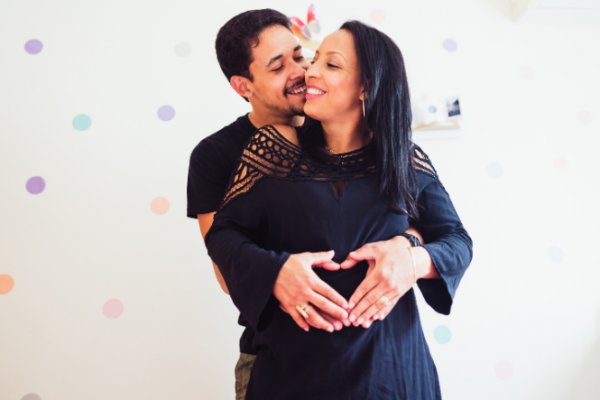HbA1c
This is a blood test, which measures your average blood glucose levels over the previous 2-3 months. Every pregnant person is offered an HbA1c blood test, as part of the routine antenatal blood tests done before 20 weeks.
- If it's very high, you will be diagnosed with pre-existing diabetes and referred to a diabetes in pregnancy clinic
- If it's moderately raised, you are at increased risk of developing gestational diabetes, and should have a 2 hour oral glucose tolerance test (OGTT) test at 24–28 weeks. See the 2 hour OGTT described below.
1 hour 'Polycose' glucose challenge blood test (OGCT)
This test measures how well your body can process sugar and is done between 24 and 28 weeks of pregnancy. The test should only be done if your HbA1c was low, and you have no personal or family history that would increase your risk of gestational diabetes. This is because it may miss diabetes in up to a quarter of pregnancies. If the results are outside the expected normal range, you could be offered the 2 hour OGTT or referred to a diabetes in pregnancy clinic.
- You can have this test at any time of the day.
- For this test, you’ll drink a sugary drink and then wait 1 hour before giving a blood sample. You won't have to do anything special before or after the test. Most people don't have side effects from the oral glucose challenge test.
2 hour OGTT (oral glucose tolerance test)
If your HbA1c or the results of your 1 hour OGTT were raised, your midwife or lead maternity carer will offer you an oral glucose tolerance test at 24–28 weeks of pregnancy. This test will confirm if you have pregnancy diabetes or not.
- This test is done on an empty stomach, so your appointment for the test will be in the morning.
- You shouldn’t eat or drink anything for at least 8 hours before the test.
- You can eat normally the day before the test, but don’t have anything to eat or drink (except water) after your last meal the evening before.
- When you arrive for the test, a blood sample is taken to measure how much glucose is in your blood after you’ve been fasting/haven’t eaten anything.
- Next, you’ll drink a sugary drink and then wait 2 hours before giving another blood sample. You will not be able to leave the lab for 2 hours.
- Most people don't have side effects from the OGTT. Some feel sick, sweaty or light-headed after they drink the sugary drink, but long-term, serious side effects from this test are very uncommon.
- If the tests show that you have diabetes, your lead maternity carer will talk to you about ways you can access care to manage it. They will also refer you to a diabetes in pregnancy clinic for specialised advice.







